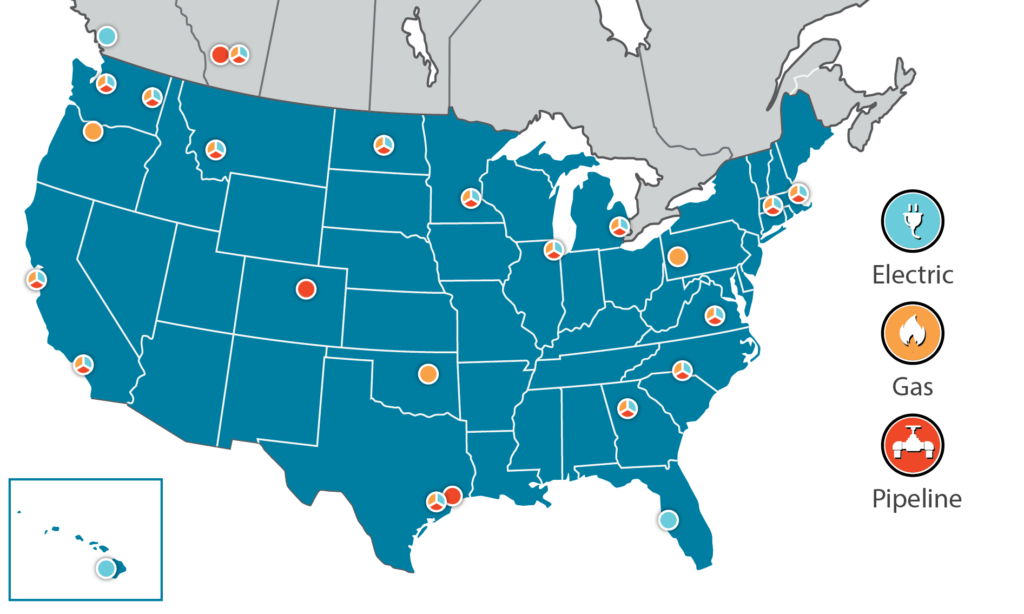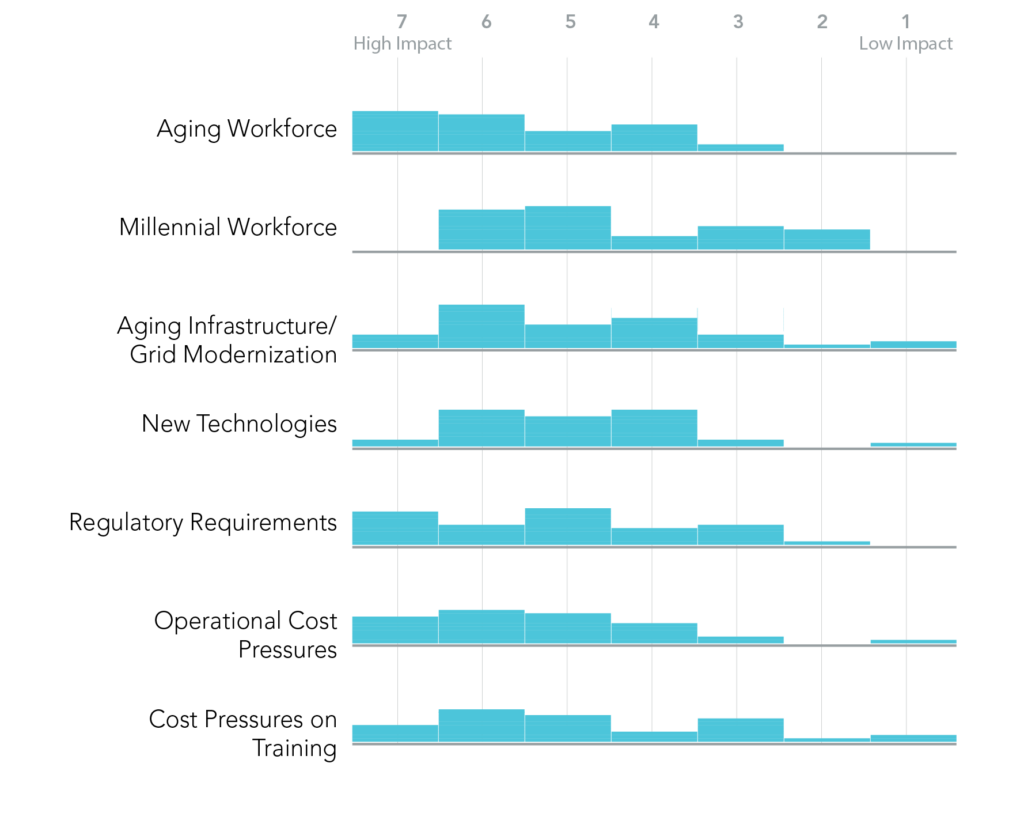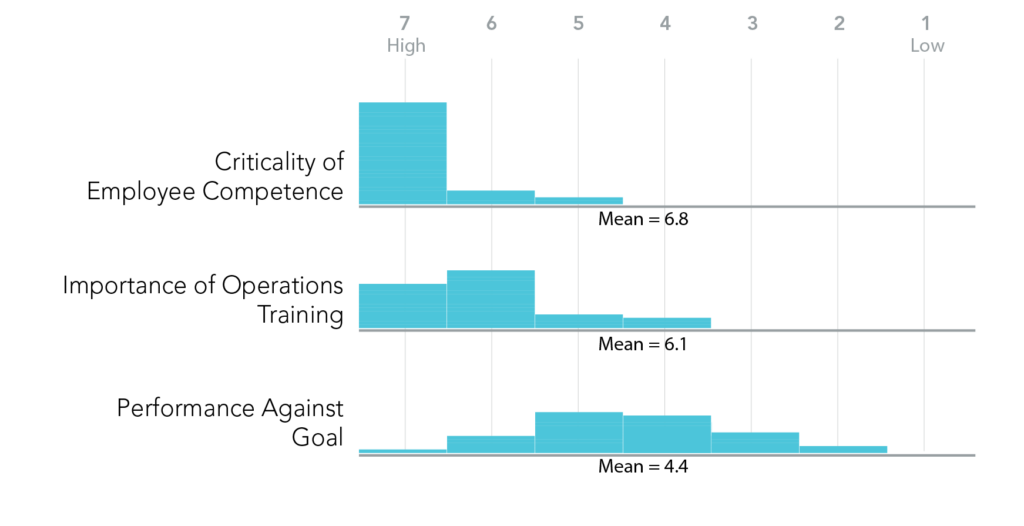While the importance of effective operations training within the energy and utility industries has never been greater, findings from a recent energy and utility training benchmark study demonstrate that the industry is facing a significant challenge in developing and sustaining a competent workforce. However, the study also found a handful of proactive steps that leading companies are taking to develop a skilled and high-performing workforce in alignment with business goals.
The study was sponsored by Pacific Gas and Electric Company, Enbridge, NiSource, and Dominion Energy. It was conducted by The Mosaic Company (Mosaic), a national consulting firm that focuses on developing employees to their fullest potential and driving business performance in the energy and utility space. Thirty-six leading energy and utility companies in North America participated in a thorough interview process, covering topics from governance and measurement, to training development, and delivery and use of technology in training.
The state of the industry Operations training is critically important to the energy industry due to the high safety risks of the work being performed. Additionally, the level of change in the industry is prompting a shift in the way companies approach training. Consider that:
The graph below depicts the level of impact (on a scale of 1 to 7) that participants felt each of the following market pressures were having on their companies and training organizations.

All participating benchmark companies reported that the importance of building and sustaining a competent workforce was becoming increasingly critical to achieving desired business results and that effective operations training was an essential component in creating and sustaining business value. However, only 16 percent of training leaders interviewed believed that their organization’s training efforts are sufficient to achieve desired competency levels and produce elevated results. The fact that companies recognize the significance of a competent workforce while failing to adequately invest in the training required to achieve that goal, is a serious gap compared to other industries.

Many companies are making significant strides in the following areas compared to industry peers, enabling them to elevate their field operations training programs and achieve enhanced business results.

Training organizations that use either internal instructional designers or external training experts are experiencing increased training program consistency, quality and effectiveness, and a reduction of the time spent in formal classroom training. It all improves the transfer of knowledge back to the job.
Mosaic’s 2017 Energy Training Benchmark results indicate that the energy industry is making important strides in maximizing the effectiveness of field operations training. Further, company leaders are taking notice and increasing their investment in programs, facilities, and resources. Demonstrating that “people are our most important asset” can be much more than a slogan. It can be a critical component of meeting business goals.
For more information or to request the full benchmark report, contact Rachel Collier at rcollier@themosaiccompany.com.